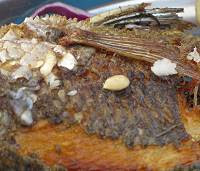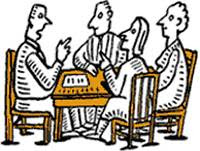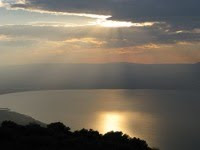Don't miss the
Moggerhanger Meeting!
Moggerhanger Meeting!
 Sunday 7th February, 2010. Open to everyone with an interest in organic expressions of church.
Sunday 7th February, 2010. Open to everyone with an interest in organic expressions of church.(This is the second notice and contains new additional information.)
- What? - People are gathering from Bedfordshire, Cambridgeshire, and Northamptonshire for a snowdrop walk, a shared meal, to hear some visiting speakers, and for an afternoon of meeting together with Jesus.
- Where? - Moggerhanger Park near Bedford (full directions) MK44 3RW.
- When? - Sunday 7th February 2010 at 13:30.
- Cost? - No charge, but there will be an opportunity to donate to Moggerhanger Park.
Numbers - If you are planning to come and have not yet told us the numbers in your party, please make sure you get those details to us as soon as possible (at the latest by the end of Friday 5th February). This is necessary so we can provide the right amount of food.
Dietary needs - If people in your group are vegetarian, have food allergies or intolerances, or have other special requirements do let us know that too. Thanks.
Children's room - We plan to have space and some activities for children and may be able to help supervise, but if you are bringing children please be prepared to help if necessary by spending some time in the children's room yourself. You are welcome to keep children with you in the main meeting if you prefer. Older teenagers can help with the younger ones or join the main meeting.
Music - We have not made arrangements for music, but if you're a musician we encourage you to bring and use an instrument.
Programme - We expect this to be a flexible framework, it's important to be responsive to the Lord as we meet and we'll make changes if necessary as we go along.
- Arrive at Moggerhanger Park by 13:30, the gates will be open before that. Once inside the grounds turn first left towards the house and park at the front. If you're early feel free to explore the grounds.
- The snowdrop walk will begin from the front of the house at 13:30 (weather permitting). It's an easy stroll on reasonably firm woodland paths. You might need boots if it's been raining (wellingtons, walking boots, or a spare pair of old shoes that won't be spoiled by a little mud).
- We'll aim to eat at 14:00. Make your way through the front door of the house.
- From 14:45 - After lunch we plan to have three short presentations - no more than 15 minutes each. If you have an unfinished drink, bring it to the meeting room with you.
- Peter Farmer - Church Networks and Church Planting
- Chris Jefferies - Church of Two (CO2)
- Pete Stamford - X-treme Youth Camps
- Q and A session
- From 15:45 - A time for open prayer, praise, and body ministry
- 17:30 - Cup of tea or coffee and a slice of cake
- Optional - There is no official end to the meeting. If anyone would like to stay on for more discussion, prayer etc after the tea/coffee that will certainly be possible. Some may need to get away quickly (if you have young children or a long journey, for example).
For anyone interested in the house, the park, and the work that goes on there, it may be possible to organise an impromptu house tour. Please ask. The Moggerhanger Park website contains a lot of valuable information.
Grace, peace and joy,
Chris Jefferies
chris@scilla.org.uk
124 St Neots Road
Eaton Ford
St Neots
Cambs
PE19 7AL


























